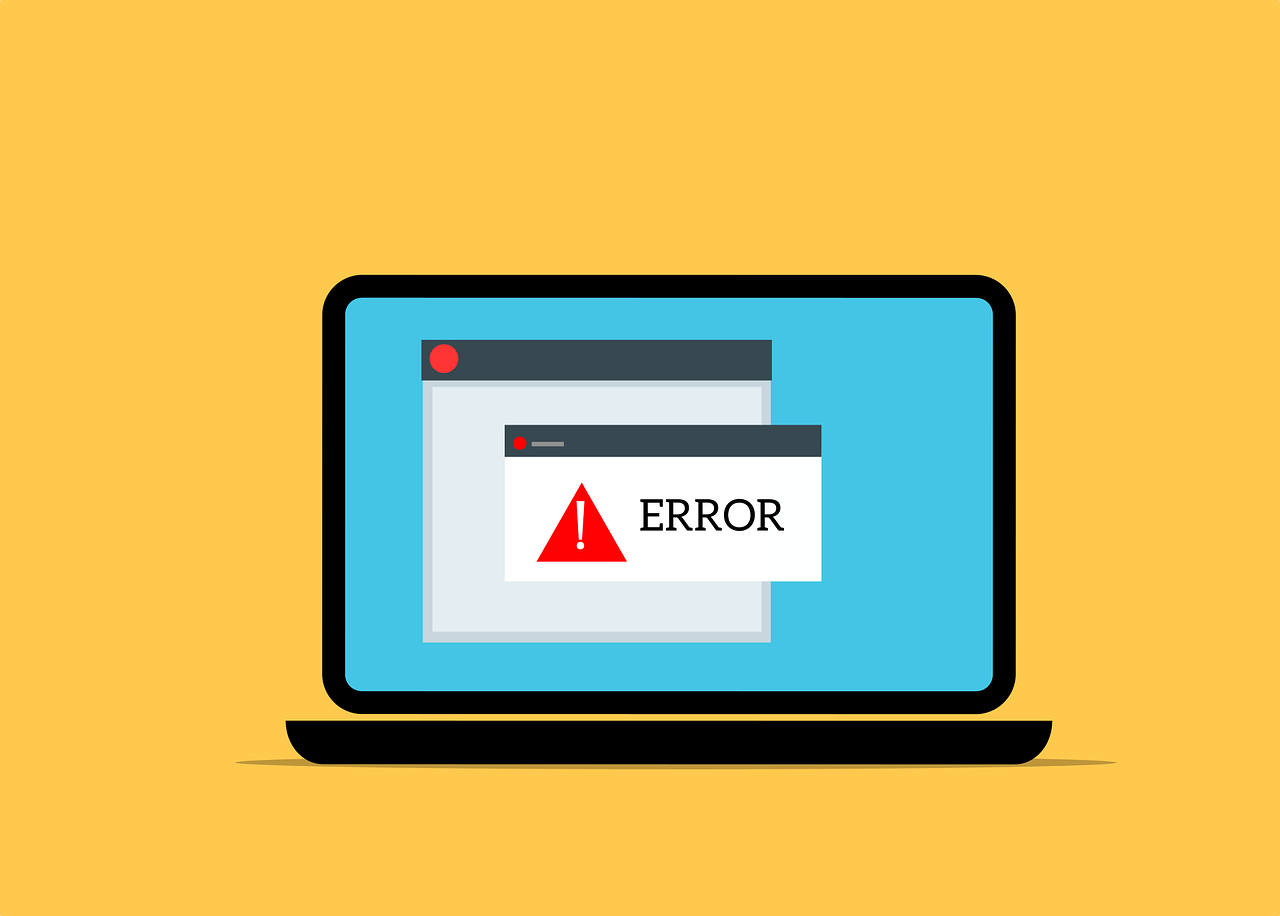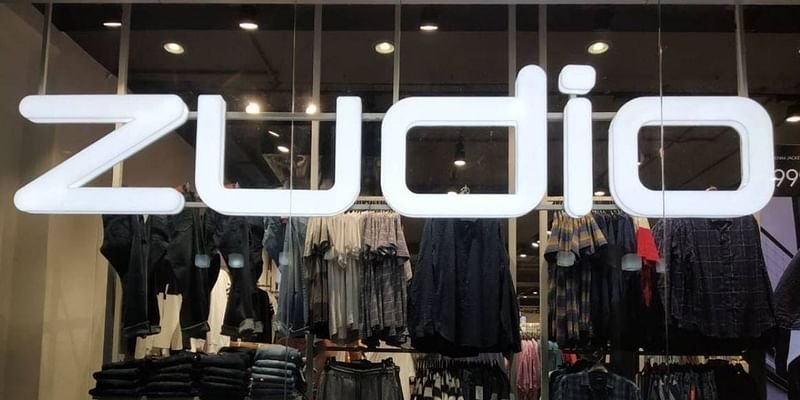Startup
5 worst IT outages and failures that shook the tech world

In today’s technology-driven world, IT outages can have a significant impact on businesses and individuals alike. From disrupting operations to causing financial losses, these outages can be a nightmare for anyone relying on technology for daily tasks. Let’s look at the top 5 biggest IT outages in history and see what we can learn from them.
Top 5 internet outages that shook the world

1. Crowdstrike outage: Faulty software update
Crowdstrike, a cybersecurity company known for its endpoint protection solutions, experienced a major outage on July 19th, 2024. The firm had pushed out a software update that led to Microsoft’s operating system crashing. This resulted in a global outage causing significant disruption to Windows users. According to statistics around 8.5 million devices were affected with the blue screen of death (BSOD).
Remember when major services like airports, hospitals, public transport, financial services, and even several media outlets went down after this massive outage? It cost Fortune 500 companies a whopping $5.4 billion, making it the biggest IT outage in history. Crowdstrike had to jump into action quickly to resolve the issue and restore its services to prevent further damage.
However, this incident underscores the need for businesses to rely on a diverse range of software solutions to mitigate global outage problems.
2. Amazon Web Services outage: A human typo
The tech world was rocked when Amazon Web Services (AWS), the biggest player in cloud computing, experienced a major outage in 2017. However, the reason behind the four-hour-long downtime was a human-made typo in a debugging session.
This disruption had a domino effect, causing chaos for countless websites and services like Slack, Quora, Medium and Business Insider. But that’s not all, AWS’s outage made a ripple effect on S&P 500 companies to lose $150 million.
It was a wake-up call, highlighting the need for backup plans and system redundancy. Companies also realised the risks of depending solely on a single provider, and the importance of diversifying their options.
3. Facebook outage: System bug
Can you picture a world without Facebook, WhatsApp, or Instagram? Hard to imagine, right? Well, that’s exactly what happened in October 2021 when Meta (formerly Facebook) experienced a massive global outage that lasted for 6 to 7 hours. This outage affected billions of users worldwide, leading to a significant drop in user engagement and ad revenue.
According to data from Bloomberg, Meta suffered a staggering $47.3 billion loss in market value, with Mark Zuckerberg himself losing around $6 billion. It was revealed in a blog post by Meta that the global crash occurred due to a system bug that prevented the staff from fixing a faulty command. The company later issued a public apology for the inconvenience caused.
4. Google outage: Storage trouble
The search engine giant’s 45-minute-long outage caused an internet meltdown in 2020. An internal storage issue in Google’s authentication system could not free up space. This caused the system to crash leading to a major outage that impacted a wide range of services, including YouTube, Google Drive, Gmail, Google Maps and many more. Millions of users could not log in and had no choice but to wait for the restoration of these services. Data from Fox Business reveals that Google lost $1.7 million in ad revenue from YouTube’s downtime.
5. DYN outage: Overwhelming DDoS attack
In 2016, DYN, a popular DNS provider, suffered a major outage that lasted for several hours. The firm faced a distributed denial-of-service (DDoS) attack via IP cameras, IoT devices, etc to overwhelm Dyn’s servers.
This outage affected a wide range of services Twitter, Reddit, Spotify, CNN, Netflix, Amazon, and many others mainly in Europe and North America. Hackers leveraged the Mirai botnet, a malicious software to infect numerous devices ultimately causing big platforms to go down.
The internet is a funny place
Even the largest and most reputable technology companies are susceptible to IT outages. Both businesses and individuals must establish contingency plans and diversify their IT infrastructure in order to minimise widespread disruptions. Drawing from past mistakes can provide valuable insights for better preparing for future IT challenges.
Startup
Swiggy IPO gets oversubscribed led by QIB bids

Foodtech giant Swiggy IPO was oversubscribed 1.07 times by Friday afternoon, the third day of its book-building process.
Qualified Institutional buyers (QIBs), which typically invest on the last day to gauge overall market demand, came through for the company’s IPO, with the portion oversubscribed 1.52 times.
According to the BSE, non-institutional investors(NIIS) made bids for 22% of the allocated issue size, while retail investors subscribed to 97% of the portion.
The Sriharsha Majety-led company saw the quota reserved for employees being subscribed 1.38 times.
On the first and second days of the book-building process, Swiggy IPO was subscribed only 35% and 12%, respectively.
Swiggy has secured nearly Rs 5,085 crore (about $605 million) from anchor investors, including the life insurance and mutual fund divisions of HDFC, ICICI, and SBI. The anchor book attracted participation from over 75 major domestic mutual funds, along with international investors such as Astrone Capital, Fidelity, and BlackRock.
The Bengaluru-headquartered company, which competes with publicly listed Zomato and General Catalyst-backed Zepto, has set its IPO price band at Rs 371 – Rs 390 per equity share.
Startup
OpenAI spent $10 million on this domain: Here’s why!

Have you checked out X (formerly Twitter) lately? If you have, you might have come across an intriguing post by Sam Altman featuring a mysterious URL called “Chat.com”, with no caption. Curious? When you click on it, you’re taken straight to OpenAI’s groundbreaking tool, ChatGPT.
OpenAI has made headlines recently with a jaw-dropping move: they reportedly shelled out over $10 million for this domain! At first glance, this looks like a steep price tag in an era where many brands are trimming their budgets to stay lean.
So, what’s the story behind this hefty domain purchase? Let’s take a closer look at this!
Why OpenAI spent millions of dollars on a domain
This strategic move is driven by OpenAI’s mission to establish itself as a dominant force in the realm of AI-powered tools, particularly through its flagship product, ChatGPT.
In the tech world where innovation reigns supreme, securing a domain that perfectly aligns with the branding and functionality of its most popular service is a given. Today, ChatGPT has rapidly become a go-to AI tool used by millions for generating images, answering questions and offering assistance with content creation and even programming.
So, OpenAI’s purchase of chat.com is not just about owning a cool web address—it’s a calculated move to enhance its digital identity and ensure that the ChatGPT experience remains tied to its brand as it expands its offerings.
The bigger picture: OpenAI and HubSpot
In a surprising turn of events, the tech world is buzzing over OpenAI’s recent million-dollar domain acquisition, leaving many to wonder about its intriguing backstory. The domain in question, chat.com, has quite the history—it was initially registered way back in September 1996.
Fast forward to 2023, and it found a new owner in Dharmesh Shah, the co-founder and CTO of the widely popular CRM platform HubSpot, who purchased it for a staggering $15.5 million! But the plot thickens!
Just a few months later, in March, Dharmesh dropped a bombshell: he sold chat.com to an anonymous buyer for an undisclosed sum, which has now been confirmed to be OpenAI. While Sam Altman has remained tight-lipped about the specifics of the acquisition, reports from The Verge suggest that Dharmesh may have pocketed more than $15 million from the sale.
This hefty investment in chat.com is more than just a flashy purchase; it’s part of OpenAI’s strategic vision. Owning a domain that’s not only memorable but also inspires trust is crucial for establishing credibility and attracting customers in this competitive landscape.
Chat.com is now ChatGPT’s new destination
Spending more than $10 million on a domain might seem extravagant, but for OpenAI, this investment is a strategic move aimed at building a more unified, and recognisable brand. With chat.com, the company positions itself at the centre of the rapidly growing AI-powered market. As OpenAI continues to innovate, this domain acquisition will likely prove to be one of the company’s most crucial investments in securing its place at the top of the AI industry.
Startup
Trent Q2 profit grows 47% to Rs 335 Cr; sales jumps 39.3%

Tata Group retail firm Trent on Thursday reported a 46.9% growth in its consolidated net profit to Rs 335.06 crore for the second quarter ended September 2024.
The company had posted a consolidated net profit of Rs 228.06 crore a year ago, according to a regulatory filing from Trent, which operates retail stores under brands like Westside, Zudio, and Star.
Its consolidated revenue from operations increased 39.37% to Rs 4,156.67 crore during the quarter under review. It was Rs 2,982.42 crore in the year-ago period, it added.
Trent’s total expenses rose 48.49% to Rs 3,743.61 crore in the September quarter.
As of September 30, Trent was operating 226 Westside, 577 Zudio and 28 stores across other lifestyle concepts, the company said in an earning statement.
“During the quarter, we opened 7 Westside and 34 Zudio stores (including 1 in Dubai) across 27 cities. We also consolidated 9 Westside and 16 Zudio stores,” it added.
Its Chairman Noel N Tata said: “Consumer sentiment has remained relatively muted. This coupled with seasonality has meant that retail businesses have faced headwinds. In the foregoing context, the team has delivered strong results across brands, concepts, categories and channels in Q2”.
Shares of Trent Ltd on Thursday settled at Rs 6,498.45 on BSE, down 6.54% from the previous close.
-

 Startup Stories1 year ago
Startup Stories1 year agoWhy Millennials, GenZs Are Riding The Investment Tech Wave In India
-

 Startup Stories1 year ago
Startup Stories1 year agoStartups That Caught Our Eyes In September 2023
-

 Startup Stories1 year ago
Startup Stories1 year agoHow Raaho Is Using Tech To Transform India’s Fragmented Commercial Trucking
-

 Startup Stories1 year ago
Startup Stories1 year agoMeet The 10 Indian Startup Gems In The Indian Jewellery Industry’s Crown
-

 Crptocurrency8 months ago
Crptocurrency8 months agoLither is Making Crypto Safe, Fun, and Profitable for Everyone!
-

 Startup Stories1 year ago
Startup Stories1 year agoHow Volt Money Is Unlocking The Value Of Mutual Funds With Secured Lending
-

 Startup Stories1 year ago
Startup Stories1 year agoWhy Moscow-Based Kladana Considers Indian SME Sector As The Next Big Market For Cloud Computing
-

 E-commerce1 year ago
E-commerce1 year agoTop Online Couponing Trends To Watch Out For In 2016




